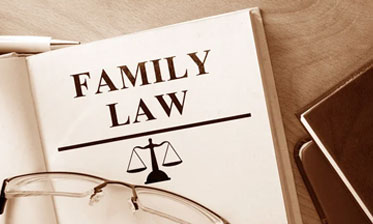
In North Carolina, child custody arrangements following separation or divorce involve crucial determinations regarding a child’s well-being. Let’s talk about the legal framework surrounding legal custody and the decision-making authority granted to parents.
Contents
Understanding Legal Custody:
Distinct from Physical Custody:
Legal Custody refers to the decision-making authority regarding a child’s upbringing, encompassing major choices concerning education, healthcare, and religious practices.
Physical Custody typically determines the child’s primary residence with each parent and the amount of visitation given to the other parent.
Types of Legal Custody Arrangements:
Sole Legal Custody: One parent holds exclusive decision-making power.
Joint Legal Custody: Shared decision-making authority between both parents, requiring effective communication and cooperation. This can sometimes be a true 50/50 split. It can also be a 51/49 split in which one parent has the final say but must consult with the other parent diligently.
In a 50/50 split, some judges will order a clause that looks something like the following:
“The parties shall consult with each other in good faith regarding all major decision affecting the minor child’s education, health, and welfare to resolve them by mutual agreement. If the parties are unable to mutually agree on such major decisions, they shall consult with the minor child’s therapist, doctor, teacher, or any other specialist. All decisions shall be based on what is best for the minor child. If the parties are unable to mutually agree on such major decisions after consulting with the minor child’s therapist, doctor, teacher, or any other specialist, either party may file a motion with the Court to address the issue.”
Factors Guiding Legal Custody Determinations:
North Carolina prioritizes the “best interest of the child” when establishing legal custody arrangements. Courts meticulously evaluate various factors to ensure choices prioritize the child’s well-being:
Living Arrangements:
- Stability and safety of the environment in each parent’s household.
- Proximity to essential resources like schools and healthcare providers.
Parenting Ability:
Each parent’s capacity to provide for the child’s physical, emotional, and educational needs, including:
- Financial stability to offer a secure living environment.
- Nurturing behavior and effective communication skills.
- Ability to devote sufficient time and attention to the child.
Child’s Relationship with Parents:
- The child’s emotional attachments and sense of well-being with each parent.
- The court may consider the child’s expressed preferences (when deemed reliable due to age and maturity) and the quality of existing relationships.
Mental and Physical Health:
- Any mental or physical conditions impacting a parent’s ability to effectively care for the child.
Sole vs. Joint Legal Custody:
Sole Legal Custody:
Granted in limited circumstances, typically when:
- One parent demonstrates significantly superior parenting abilities.
Joint Legal Custody:
The preferred approach when both parents exhibit the capacity for cooperation and prioritize the child’s best interests.
Decision-Making Processes in Joint Legal Custody:
- Requires effective communication and collaboration between parents.
- Encourages parents to reach mutually agreeable decisions concerning the child’s upbringing.
- Mediation or collaborative law approaches can facilitate communication and agreement in reaching joint decisions.
Addressing Disputes and Disagreements:
If parents cannot reach an agreement regarding significant decisions, the court may intervene:
- Parents can attempt mediation or utilize alternative dispute resolution methods.
- In the absence of an agreement, the court may hold hearings and issue rulings based on the child’s best interests.
Seeking Legal Guidance:
Navigating child custody matters necessitates legal expertise. Consulting with a qualified family law attorney in North Carolina is crucial:
- Understanding Legal Options: An attorney can explain the legal framework surrounding legal custody and advise on potential arrangements.
- Negotiating Agreements: An attorney can guide parents in crafting mutually beneficial agreements regarding decision-making.
- Representing Interests in Court: If litigation becomes necessary, an attorney can advocate for your rights and ensure your child’s best interests are protected.
Disclaimer:
This blog post is intended for informational purposes only and should not be construed as legal advice. Every child custody case is unique, and consulting with a qualified attorney is essential to navigate the legalities specific to your situation and obtain tailored guidance.


Clark Jones Author
G. Clark Jones, CEO of Ley Law, has built a distinguished career in Criminal Defense and Family Law across Eastern North Carolina, known for his dedication to clients and his commitment to achieving justice. Graduating Magna Cum Laude with a Bachelor of Science in Family Community Services from East Carolina University in December 2016, Clark pursued his Juris Doctor degree at J. Reuben Clark Law School, Brigham Young University, completing it in December 2019.





